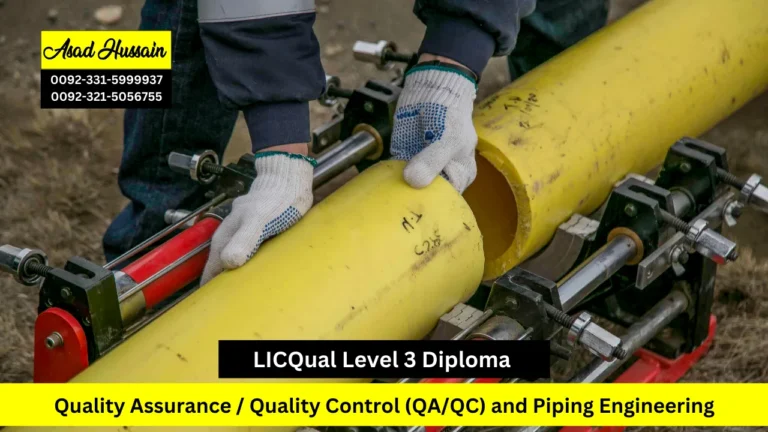The LICQual Level 6 Diploma in Healthcare Financial Management is an internationally recognized qualification designed to develop advanced expertise in financial leadership, strategic budgeting, and fiscal control within the healthcare sector. In an era where efficient financial management determines the sustainability and performance of healthcare organizations, this program equips learners with the critical skills to manage resources effectively and make sound financial decisions that enhance healthcare delivery and patient outcomes.
LICQual Level 6 Diploma in Healthcare Financial Management focuses on the key principles of healthcare finance, including budgeting, cost analysis, financial reporting, healthcare economics, and resource allocation. Learners will gain an in-depth understanding of how financial policies influence the quality, accessibility, and efficiency of healthcare services, preparing them to lead financial operations in hospitals, clinics, public health institutions, and healthcare management organizations.
The LICQual Level 6 Diploma in Healthcare Financial Management combines theoretical knowledge with practical application, ensuring learners develop the ability to interpret complex financial data, evaluate performance indicators, and formulate strategies that improve fiscal efficiency. Through real-world case studies and evidence-based learning, participants will strengthen their analytical and decision-making capabilities in healthcare finance.
The course empowers professionals to align financial strategies with organizational goals while maintaining compliance with healthcare regulations and ethical standards. Learners will explore techniques for cost optimization, risk mitigation, and strategic investment planning that drive both financial stability and service quality in healthcare settings.
By completing the LICQual Level 6 Diploma in Healthcare Financial Management, learners will gain the confidence and competence to oversee complex financial systems, ensure accountability, and lead strategic initiatives that promote organizational growth and fiscal responsibility in the healthcare sector. This course opens global career pathways and provides the knowledge foundation necessary for future leadership in healthcare financial governance.
Program Highlights
Mandatory Units
- Principles of Healthcare Financial Management
- Financial Reporting and Analysis
- Budgeting and Cost Control
- Investment Appraisal and Financial Decision-Making
- Risk Management and Compliance in Healthcare Finance
- Strategic Healthcare Financial Leadership
the LICQual Level 6 Diploma in Healthcare Financial Management are designed to ensure that learners possess the foundational academic background, professional competence, and communication skills necessary to succeed in this advanced qualification. This course welcomes ambitious healthcare and finance professionals who aspire to strengthen their expertise in healthcare budgeting, cost control, and strategic financial management.
Age Requirements
• Learners must be at least 19 years of age or older at the time of enrolment.
• There is no upper age limit, provided the candidate meets other eligibility criteria and demonstrates the motivation to complete the program successfully.
Educational Requirements
• A recognized Level 5 qualification or equivalent diploma in healthcare management, business administration, finance, or a related discipline.
• Candidates holding a bachelor’s degree in healthcare, finance, accounting, or public administration are also eligible to apply.
• Applicants without formal qualifications may be considered based on relevant professional experience and prior learning achievements.
Professional Experience
• At least two years of experience in healthcare management, financial operations, or administrative roles is highly recommended.
• Experience in roles such as healthcare finance officer, budget analyst, hospital administrator, or health systems manager will be advantageous.
• Applicants with extensive industry experience may qualify through Recognition of Prior Learning (RPL).
English Language Proficiency
• Learners must demonstrate proficiency in English to ensure effective communication and understanding of the course materials.
• Applicants whose first language is not English should possess an IELTS score of 5.5 or equivalent, or evidence of prior education or work experience in an English-speaking environment.
The LICQual Level 5 Diploma in Healthcare Management serves as an excellent related course to develop essential management and analytical skills. The LICQual Level 6 Diploma in Healthcare Financial Management provides the ideal next step for professionals committed to achieving excellence in financial planning, performance monitoring, and strategic healthcare leadership.
The LICQual Level 6 Diploma in Healthcare Financial Management equips learners with advanced knowledge and strategic financial skills essential for managing the financial operations of healthcare organizations. Through this qualification, learners gain expertise in financial analysis, budgeting, investment appraisal, risk management, and strategic financial leadership. The program focuses on developing professionals capable of making evidence-based financial decisions, optimizing resource utilization, and ensuring financial sustainability in healthcare systems. Upon completion, learners will possess both theoretical understanding and practical competence to lead financial management functions effectively across healthcare sectors.
Principles of Healthcare Financial Management
• Demonstrate a thorough understanding of the core principles and objectives of financial management within healthcare organizations.
• Analyze the relationship between financial performance, healthcare quality, and organizational sustainability.
• Apply financial management tools and frameworks to improve decision-making and operational efficiency in healthcare settings.
• Evaluate ethical and regulatory considerations influencing financial management practices in healthcare institutions.
• Develop financial strategies that align with healthcare goals, resource allocation, and patient care outcomes.
Financial Reporting and Analysis
• Interpret and prepare healthcare financial statements, including balance sheets, income statements, and cash flow reports.
• Assess financial performance using key ratios, variance analysis, and trend evaluation techniques.
• Utilize financial data to support decision-making and enhance accountability within healthcare organizations.
• Evaluate financial compliance standards and ensure accuracy and transparency in healthcare reporting.
• Develop analytical skills to interpret financial results and communicate findings effectively to stakeholders.
Budgeting and Cost Control
• Design and implement comprehensive healthcare budgets aligned with strategic and operational objectives.
• Identify, analyze, and control costs associated with healthcare services and operations.
• Apply cost management techniques such as variance analysis and activity-based costing to optimize resources.
• Monitor budgetary performance and recommend corrective measures for financial efficiency.
• Evaluate the impact of budgeting decisions on service delivery, patient satisfaction, and organizational performance.
Investment Appraisal and Financial Decision-Making
• Apply investment appraisal techniques such as NPV, IRR, and payback period to evaluate healthcare projects.
• Assess financial risks and returns to support evidence-based decision-making in healthcare investments.
• Analyze capital expenditure proposals and recommend sustainable funding strategies.
• Evaluate financial feasibility and strategic alignment of healthcare investment initiatives.
• Develop critical decision-making skills to balance financial returns with healthcare quality and accessibility goals.
Risk Management and Compliance in Healthcare Finance
• Identify, assess, and mitigate financial risks associated with healthcare operations and investments.
• Implement internal controls and compliance measures to ensure financial integrity and regulatory adherence.
• Evaluate the role of governance frameworks in promoting financial accountability and ethical management.
• Apply risk management models to prevent financial losses and enhance institutional resilience.
• Develop practical strategies for managing fraud, errors, and financial irregularities in healthcare organizations.
Strategic Healthcare Financial Leadership
• Demonstrate leadership skills in developing and executing long-term financial strategies for healthcare institutions.
• Integrate financial planning with healthcare policy, strategic management, and performance measurement.
• Lead multidisciplinary teams to achieve financial sustainability and organizational excellence.
• Evaluate the impact of global healthcare finance trends on institutional strategy and decision-making.
• Foster innovation and continuous improvement in healthcare financial leadership and governance.
The LICQual Level 6 Diploma in Healthcare Financial Management enables learners to become proficient in managing complex healthcare financial systems with professionalism and strategic insight. By the end of the program, graduates will be capable of leading financial operations, ensuring compliance, and implementing sustainable financial strategies that support quality healthcare delivery and organizational growth across the sector.
The LICQual Level 6 Diploma in Healthcare Financial Management is a prestigious and internationally recognized qualification tailored for professionals aiming to excel in financial planning, budgeting, and strategic financial control within healthcare systems. This program provides in-depth knowledge of healthcare finance, economics, and resource management, empowering learners to make informed decisions that enhance financial efficiency, accountability, and sustainability across healthcare organizations. It equips participants with both theoretical understanding and practical tools to manage healthcare resources responsibly while supporting patient-centered outcomes and institutional growth.
Healthcare Finance Managers and Administrators
• Professionals currently working or aspiring to work in healthcare finance, budgeting, or administrative roles.
• Managers seeking to strengthen their financial decision-making skills and align financial goals with healthcare objectives.
• Individuals aiming to enhance their ability to manage hospital budgets, monitor expenditures, and optimize resource utilization.
• Learners focused on integrating financial management strategies into healthcare operations for improved performance.
• Administrators committed to promoting transparency, accountability, and fiscal responsibility within healthcare institutions.
Healthcare Professionals and Practitioners
• Doctors, nurses, and healthcare practitioners interested in understanding the financial dynamics of healthcare organizations.
• Professionals seeking to manage departmental budgets, improve cost-efficiency, and contribute to financial planning initiatives.
• Practitioners aspiring to balance clinical quality with financial sustainability in healthcare service delivery.
• Learners motivated to acquire financial literacy skills applicable to healthcare project management and operational planning.
• Individuals aiming to connect clinical decision-making with sound financial judgment for improved patient care outcomes.
Financial Analysts and Healthcare Accountants
• Professionals responsible for financial reporting, auditing, or performance analysis within healthcare organizations.
• Individuals seeking to develop expertise in healthcare accounting standards and compliance frameworks.
• Learners aiming to enhance their proficiency in analyzing financial statements and identifying cost optimization opportunities.
• Managers committed to applying evidence-based financial strategies to ensure institutional growth and financial stability.
• Accountants striving to maintain ethical financial practices while supporting healthcare system efficiency and transparency.
Policy Makers and Healthcare Executives
• Policy professionals developing strategies to ensure effective healthcare funding, sustainability, and equitable access to services.
• Executives responsible for long-term financial planning, risk management, and healthcare resource allocation.
• Leaders aiming to integrate financial policies with organizational and public health objectives.
• Administrators working to ensure compliance with healthcare financial governance and national funding policies.
• Professionals dedicated to promoting ethical, sustainable, and transparent financial management systems across healthcare sectors.
Supervisors and Departmental Heads
• Supervisors and heads of departments managing financial operations in hospitals, clinics, or public health institutions.
• Leaders striving to implement efficient cost control, budgeting, and reporting systems at the departmental level.
• Professionals motivated to improve resource utilization through effective financial monitoring and staff collaboration.
• Managers seeking to bridge the gap between financial strategy and operational excellence in healthcare organizations.
• Individuals responsible for developing staff capabilities in financial management and budget planning.
Career-Focused Learners and Future Healthcare Financial Leaders
• Individuals aspiring to build careers in healthcare financial management, auditing, or consultancy roles.
• Learners preparing for leadership positions in healthcare finance departments, ministries of health, and healthcare corporations.
• Professionals aiming to advance academically or professionally within healthcare economics and financial administration.
• Career-driven individuals motivated to ensure financial efficiency, accountability, and ethical management within healthcare systems.
• Learners determined to become strategic leaders capable of shaping financially sustainable and patient-centered healthcare environments.
The LICQual Level 6 Diploma in Healthcare Financial Management is ideal for professionals dedicated to enhancing their financial expertise, leadership capability, and strategic vision in healthcare. Graduates will acquire the skills to manage complex financial systems, lead budgeting initiatives, and implement financial policies that promote organizational sustainability and excellence. This qualification opens pathways to roles such as Healthcare Finance Manager, Financial Analyst, Healthcare Administrator, and Policy Advisor, empowering individuals to make a lasting contribution to the financial and operational success of healthcare institutions worldwide.







